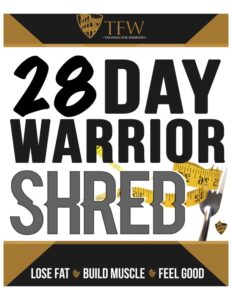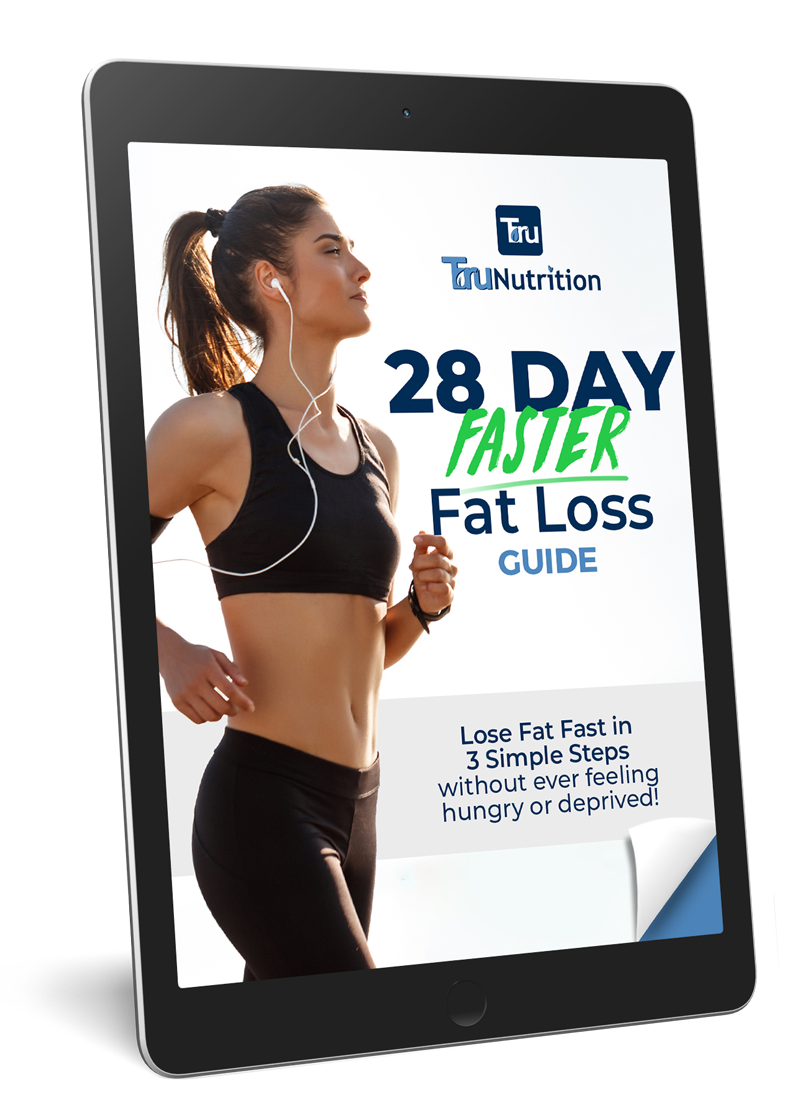Losing fat and achieving a healthy weight is a goal many individuals strive for. While exercise is crucial, proper nutrition plays a vital role in achieving sustainable fat loss. Designing a well-balanced and personalized meal plan is essential for promoting fat loss while maintaining overall health. In this article, we will guide you through the process of creating an effective fat loss meal plan.
Determine your caloric needs:
To create a fat loss meal plan, start by calculating your daily caloric needs. This can be done by considering factors such as age, gender, weight, height, and activity level. Several online calculators or professional dietitians can assist you in determining the appropriate calorie intake for your goals. Here is our favorite Macro Calculator >>
Set a calorie deficit:
To lose fat, you need to create a calorie deficit, which means consuming fewer calories than you burn. A safe and sustainable calorie deficit is usually around 300 to 750 calories per day. This gradual approach allows for a steady fat loss without compromising your health.
Prioritize whole, nutrient-dense foods:
Focus on incorporating whole, unprocessed foods into your meal plan. These foods are rich in nutrients, low in calories, and help keep you feeling satisfied. Include a variety of lean proteins (such as chicken, fish, tofu), whole grains (like brown rice, quinoa), fruits, vegetables, and healthy fats (avocados, nuts, olive oil).
CLICK for a copy of our Warrior Shred Recipe Guide >>>>
Optimize macronutrient distribution:
Balancing your macronutrients is essential for a well-rounded meal plan. Aim to include a moderate amount of lean protein, complex carbohydrates, and healthy fats in each meal. Proteins promote satiety, aid in muscle maintenance, and support fat loss. Carbohydrates provide energy, while healthy fats contribute to hormone regulation and overall well-being.
Control portion sizes:
Even with healthy foods, portion control is crucial for fat loss. Be mindful of portion sizes and avoid mindless eating. Use smaller plates, measure your food, and pay attention to hunger and fullness cues. Consuming appropriate portions helps prevent overeating and promotes a sustainable calorie deficit.
Incorporate regular meal frequency:
Eating at regular intervals can help regulate your metabolism and prevent excessive hunger. Aim for three main meals and 1 -2 small, balanced snacks throughout the day. This approach keeps your energy levels stable and reduces the likelihood of unhealthy snacking or overeating.
Stay hydrated:
Proper hydration is often overlooked but is crucial for overall health and fat loss. Drinking an adequate amount of water throughout the day helps maintain metabolic functions, aids digestion, and keeps you feeling satisfied. Make water your primary beverage and limit sugary drinks.
Plan and prep your meals:
Meal planning and preparation can significantly support your fat loss journey. Set aside time each week to plan your meals, create a grocery list, and prepare your ingredients in advance. Having healthy, pre-portioned meals and snacks readily available reduces the temptation to make poor food choices when time is limited. See below for a 3 day sample meal plan
Monitor and adjust:
Regularly monitor your progress and make adjustments to your meal plan as needed. Fat loss is a dynamic process, and what works initially may need modification over time. Keep track of your food intake, physical activity, and how your body responds to the plan. Seek professional guidance if necessary.
Creating a fat loss meal plan requires careful consideration of your individual needs, goals, and preferences. By focusing on whole, nutrient-dense foods, balancing macronutrients, controlling portion sizes, and staying consistent, you can develop a sustainable eating plan that supports your fat loss journey. Remember, it’s important to prioritize your health and seek professional guidance when necessary.
Here’s a sample three-day meal plan that incorporates the principles discussed in the article:
Day 1:
Meal 1: Breakfast
- Veggie omelet with egg whites, spinach, mushrooms, and bell peppers
- Whole-grain toast with a smear of almond butter
- Fresh fruit salad (watermelon, pineapple, and berries)
Meal 2: Lunch
- Grilled chicken breast with quinoa and roasted vegetables (zucchini, eggplant, and cherry tomatoes)
- Mixed green salad with a light balsamic vinaigrette dressing
Meal 3: Afternoon Snack
- Greek yogurt with blueberries and a 1/2 scoop of protein powder or
Meal 4: Dinner
- Baked cod with lemon and dill
- Steamed asparagus and broccoli
- Baked sweet potato
Day 2:
Meal 1: Breakfast
- Overnight oats made with rolled oats, almond milk, chia seeds, and topped with sliced bananas and a drizzle of honey
- Hard-boiled eggs
Meal 2: Lunch
- Turkey lettuce wraps with lean ground turkey, lettuce leaves, diced tomatoes, and avocado
- Quinoa salad with cucumbers, cherry tomatoes, and a light lemon dressing
Meal 3: Afternoon Snack
- Cottage cheese or Greek yogurt with sliced strawberries
Meal 4: Dinner
- Grilled shrimp skewers with bell peppers and onions
- Cauliflower rice stir-fry with mixed vegetables (carrots, peas, and green beans)
Day 3:
Meal 1: Breakfast
- Protein pancakes made with oats, cottage cheese, and topped with fresh berries
- A side of scrambled egg whites
Meal 2: Lunch
- Baked chicken breast with sweet potato mash and steamed broccoli
- Mixed greens salad with cherry tomatoes, cucumbers, and a light vinaigrette dressing
Meal 3: Afternoon Snack
- Apple and handful of almonds
Meal 4: Dinner
- Lean beef stir-fry with mixed vegetables (broccoli, snap peas, and bell peppers)
- Quinoa
Meal 5: Evening Snack
- Greek yogurt with a sprinkle of cinnamon and sliced almonds
Remember, this is just a sample meal plan, and it’s important to customize it based on your individual needs, preferences, and calorie goals. Consult with a dietitian or nutritionist for personalized guidance and to ensure the meal plan aligns with your specific requirements.
If you’re struggling to stay consistent with your diet and exercise, let us help you! Learn more about how Warrior Week will get you started on the right track to results. This program has a challenging yet fun combination of workout modalities focusing on Training and Nutrition Coaching. We promise you that if you put in the effort and stay consistent and focused in each and every workout, you’ll be reaping the benefits, big time!
CLICK HERE TO LEARN MORE >> https://form.typeform.com/to/drMgvUVM







